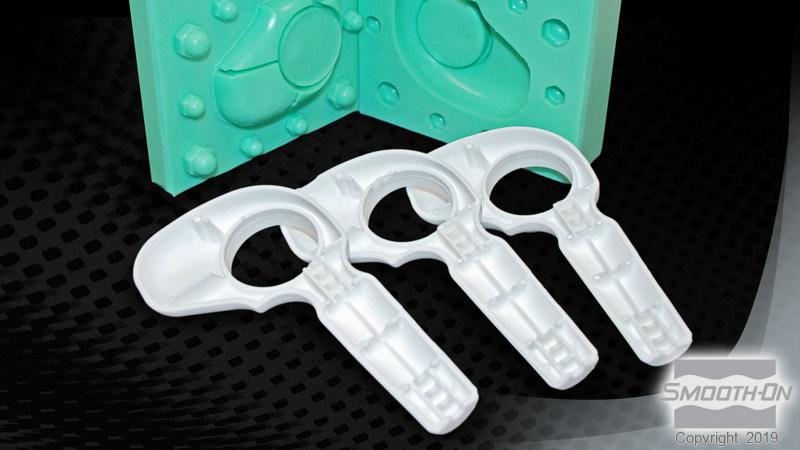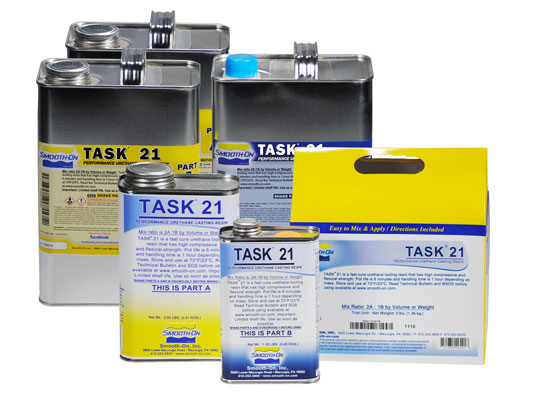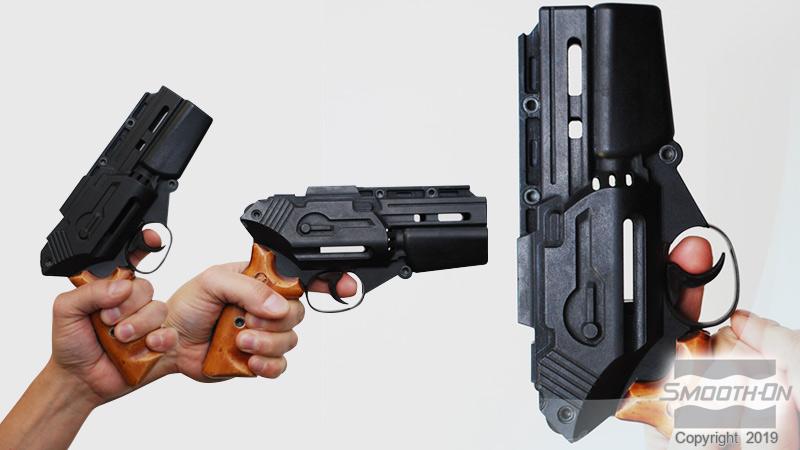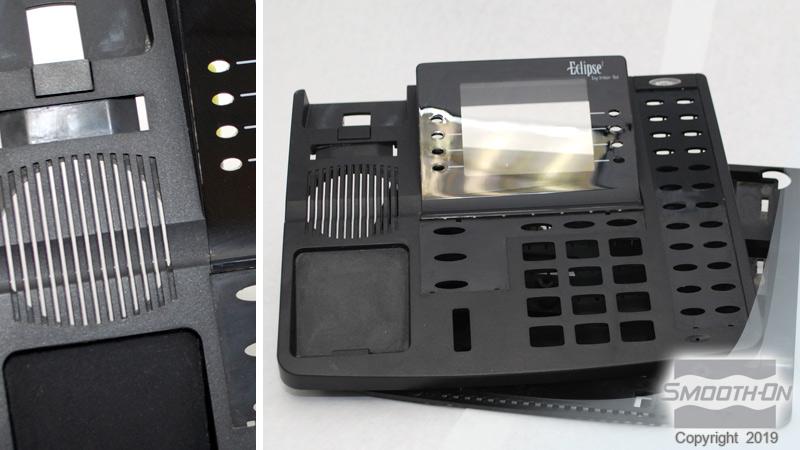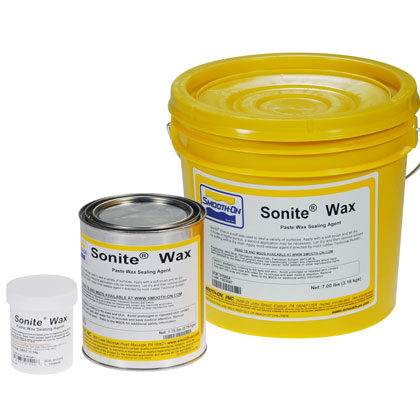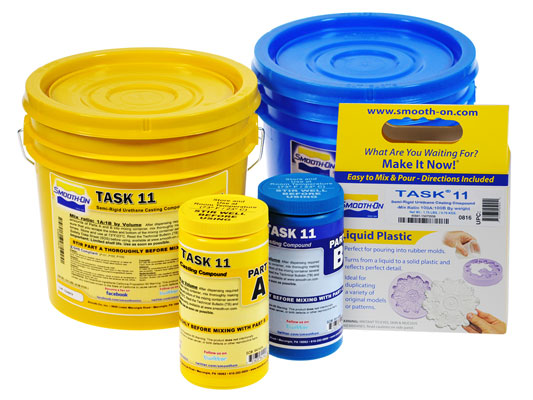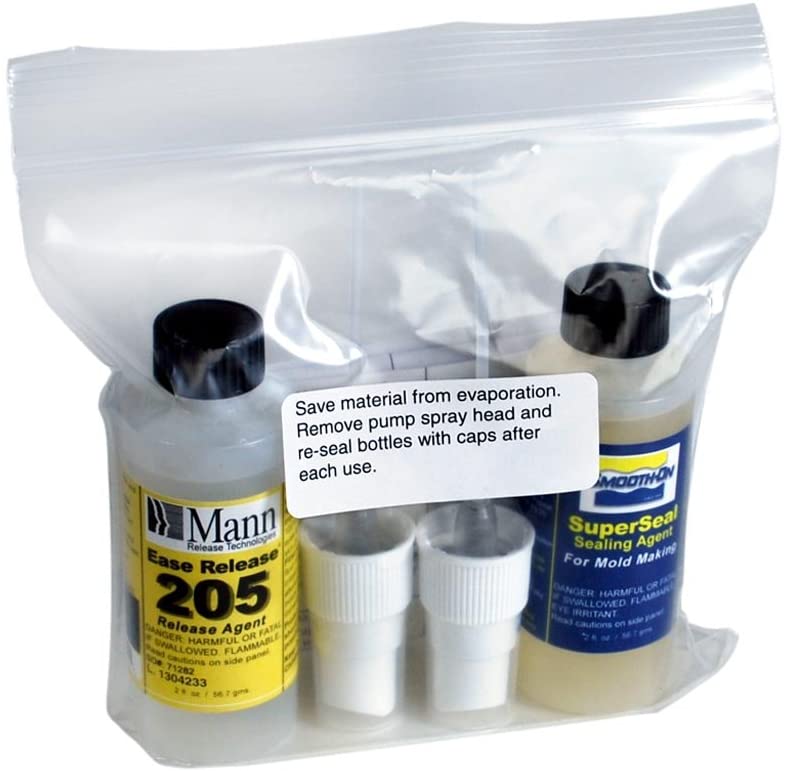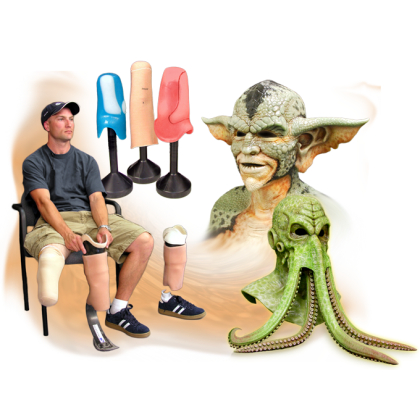TASK 21 features a low mixed viscosity of 500 cps and readily de-airs itself when cast into molds. SO-Strong™ or IGNITE™ colorants can be added for color and a variety of powder fillers can be added to alter performance or appearance characteristics. Applications for TASK 21 include rapid prototyping, casting strong and highly detailed models, making holding / assembly fixtures, figurines and decorative castings.
IMPORTANT – TASK 21 can not be cast into platinum-cure silicone molds. We recommend casting TASK 21 into tin-cure silicone or urethane rubber molds (using a release agent).
Instructions
Materials should be stored and used in a warm environment (73°F/23°C). These products have a limited shelf life and should be used as soon as possible. All liquid urethanes are moisture sensitive and will absorb atmospheric moisture. Mixing tools and containers should be clean and made of metal, glass or plastic. Mixing should be done in a well-ventilated area. Wear safety glasses, long sleeves and rubber gloves to minimize contamination risk.
For Best Results… Do not cast TASK™ 21 into platinum cure (addition cure) silicone molds.
Because no two applications are quite the same, a small test application to determine suitability is recommended if performance of this material is in question.
Applying A Release Agent – If you are unsure about surface compatibility, a trial casting on a surface finish similar to the final mold or model should be made to avoid damage to the working surface. Polyurethane, latex or metal molds should be dry and require a coat of suitable release agent. Universal Mold Release (available from Smooth-On) is ideal for this purpose. A liberal coat of release agent should be applied onto all surfaces that will contact the plastic. To ensure thorough coverage, lightly brush the release agent with a soft brush over all surfaces. Follow with a light mist coating and let the release agent dry for 30 minutes.
Measuring – The proper mixing ratio is 2A:1B by volume or weight. Dispense the required amount of Part A into a mixing container. Dispense the appropriate amount of Part B and combine with Part A.
Mixing – Materials should be stored and used in a warm environment (73° F / 23° C). Shake or stir Part A & Part B before using. Add Part A to Part B and mix thoroughly. Stir slowly and deliberately making sure that you scrape the sides and bottom of the mixing container several times. Be careful not to splash low viscosity material out of container. Remember, product sets up quickly. The higher the mass concentration, the faster the material gels and cures. Do not delay between mixing and pouring.
IMPORTANT: Shelf life of product is reduced after opening. Remaining product should be used as soon as possible. Immediately replacing the lids on both containers after dispensing product will help prolong the shelf life of the unused product. XTEND-IT™ Dry Gas Blanket (available from Smooth-On) will significantly prolong the shelf life of unused liquid product.
Vacuuming – TASK™ 21 is low in viscosity and does not require vacuum degassing. If you choose to vacuum the material, subject mixture to 29 h.i.g. mercury in a vacuum chamber until mixture rises, breaks and falls. Allow for 3 to 4 times volume expansion in mixing container. Be aware of pot life so that material does not set up in mixing container.
Pouring – Warning: Fumes, which may be visible as this product starts to “gel” and cure, will dissipate with adequate ventilation. Only use this product with room size ventilation and do not inhale/breathe fumes. Castings will be extremely hot immediately following cure and may burn the skin. Let cool to room temperature before handling.
For best results, pour your mixture in a single spot at the lowest point of the mold and let the mixture seek its level. This will help minimize air entrapment. Casting thickness should not exceed ½”(1.27 cm).
Curing – Important: Use this product with at least room size ventilation or in proximity to a forced outlet air vent and do not inhale/breath fumes. Fumes, which may be visible with a significant mass concentration, will quickly dissipate with adequate ventilation. Castings with significant mass may be hot to the touch and irritate skin immediately following cure. Let casting cool to room temperature before handling.
Demold time of the finished casting depends on mass and mold configuration. Low mass or thin-walled castings will take longer to cure than castings with higher mass concentration.
If making rotational or hollow castings, backfilling with a rigid foam (Foam-iT! 5 or other) will provide lightweight reinforcement. Foam backfilling is recommended if castings will be subjected to temperatures above 85°F / 30°C.
Performance – Cured castings are rigid and durable. They resist moisture, moderate heat, solvents, dilute acids and can be machined, primed/ painted or bonded to other surfaces (any release agent must be removed). If machining cured TASK™ plastics, wear dust mask or other apparatus to prevent inhalation of residual particles. Castings can be displayed outdoors after priming and painting.

